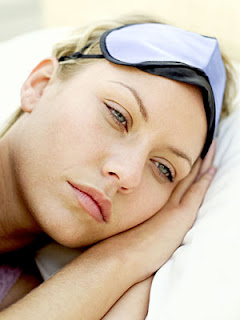Finding Foods to Help You Sleep Better
Sleep and Eating: Fighting Insomnia With Food
Sleep problems may be caused by bad eating habits or by health conditions that a better diet can improve. Learn about the relationship between sleep and food to find the right bedtime snack for you.
“If you want to be alert, functional, and at 100 percent capability, you must have a good night’s sleep,” says Susan Zafarlotfi, PhD, clinical director of the Institute for Sleep-Wake Disorders at Hackensack University Medical Center in New Jersey. Though the most widely talked about sleep problems are sleep apnea and snoring, the most prevalent need is for an insomnia cure. Besides functioning well during the day, people who sleep well have better control over their weight. “Proper sleep is important in order to stay on a diet and lose weight,” says Zafarlotfi.
The Sleep and Diet Connection
Unfortunately, when you don’t get enough sleep, it’s human nature to try to make up for it with food. “On a very basic level — and we’ve seen it with jet lag when you travel — when you have sleep deprivation, you put food in your mouth as comfort because you don’t feel normal,” says Zafarlotfi. The problem is, sleep deprivation causes your metabolism to change completely. If you have sleep problems like snoring and sleep apnea and are overweight, successful dieting — lowering your body fat index — can help resolve them, says Zafarlotfi.
Forget the Fad Diets
Just as there are no fad diets that work to lose weight, there are no diets that have been proven to help you fall a sleep, Zafarlotfi says. What does matter is being aware of any health conditions you have that are related to food. “Do what’s necessary to resolve them, which often translates to better sleep,” says Zafarlotfi. If you have GERD or acid reflux and you eat something in the evening that aggravates it, your symptoms will interfere with sleep. “Treat the gastric issue, then the sleep disorder is treated,” Zafarlotfi advises.
Regular Mealtimes, Regular Sleep Schedules
There’s no set food menu for getting a good night’s sleep that will work for everyone. “A glass of milk prior to bedtime will help some people sleep like a lamb, but will leave others burping all night if they have lactose intolerance,” says Zafarlotfi. A better approach is to eat a balanced diet throughout the day, and eat small portions more frequently. “Ninety percent of ‘nighttime eaters’ are indulgers — they diet during the day and don’t get enough calories, and in the middle of night they eat anything.” Another rule is to wake up and go to bed at the same time each day.
Don't Go to Sleep on a Very Full Stomach
Going to bed with a full stomach is a problem for many people who work long hours, get home late, eat a full meal, and then try to go to sleep. “Your body is going to function as though it were 7 o’clock at night because of all the food you just put into it,” Zafarlotfi explains. And it doesn’t take a three-course meal to have this negative effect — an overstuffed fatty sandwich can do it. Consider a low-fat or fat-free yogurt rather than a heavy steak or lamb chops, Zafarlotfi suggests, and eat no later than two hours before bedtime.














